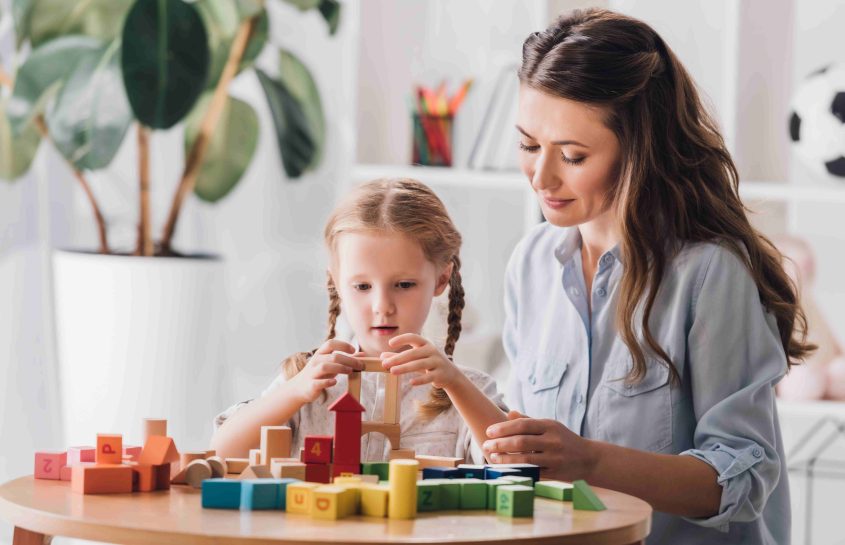Supporting Emotional Well-Being in Early Childhood
Emotional well-being in early childhood is a crucial component of healthy development, shaping how children interact with the world, manage challenges, and build relationships. During the early years, children develop the emotional and social skills that will influence their success in school, relationships, and life. Supporting emotional well-being at this stage not only helps children thrive in the present but also lays the groundwork for long-term mental health and resilience.
Why Emotional Well-Being in Early Childhood Matters
The first five years of life are a period of rapid brain development. During this time, children begin to learn how to express and regulate their emotions, form relationships, and adapt to their environment. Emotional well-being is at the heart of this developmental process, influencing:
- Cognitive Growth: Emotionally secure children are more likely to explore and learn from their surroundings, which promotes brain development.
- Social Skills: Early emotional experiences help children understand empathy, cooperation, and conflict resolution.
- Resilience: Learning to manage emotions and cope with stress equips children to handle challenges later in life.
Key Strategies for Supporting Emotional Well-Being
1. Building Strong Attachments
Secure attachments with caregivers provide a child with a sense of safety and trust. When children feel secure, they are more likely to explore their environment and take healthy risks, which are essential for learning and growth. Caregivers can foster secure attachments by:
- Offering comfort and reassurance during moments of distress.
- Attending to a child’s needs promptly and consistently.
- Engaging in one-on-one activities that strengthen your bond, such as reading, playing, or simply talking.
- Showing warmth through hugs, smiles, and encouraging words.
2. Encouraging Emotional Expression
Young children often struggle to identify and articulate their feelings. Adults can help them build emotional literacy by:
- Creating safe spaces: Let children express their emotions without fear of judgment or punishment.
- Naming emotions as they occur. For example, saying, “It looks like you’re feeling sad because your toy broke.”
- Validating the child’s feelings, even when setting boundaries. For instance, “I understand you’re upset that you can’t have more candy, but it’s almost dinnertime.”
- Modelling healthy emotional expression by sharing your feelings in appropriate ways.
3. Teaching Emotional Regulation
Emotional regulation is a vital life skill that helps children manage feelings like anger, sadness, or fear. Adults play a key role in teaching these skills by:
- Showing children how to respond to stress in healthy ways.
- Teaching calming techniques like deep breathing, counting to ten, or using words to describe feelings.
- Helping children problem-solve when they’re upset or frustrated.
- Providing opportunities for physical activity, which can reduce stress and improve mood.
4. Creating Predictable Environments
Routine and structure provide a sense of security for young children, reducing anxiety and helping them feel in control. A predictable environment can be established by:
- Setting consistent routines: Regular mealtimes, bedtimes, and playtimes help children know what to expect.
- Preparing for transitions: Give advance notice about changes to routines, such as, “In five minutes, we’ll clean up and get ready for lunch.”
- Using visual aids: Charts or pictures can help younger children understand daily schedules and expectations.
5. Fostering Social Connections
Developing positive relationships with peers and adults is a critical aspect of emotional well-being. To nurture social skills:
- Facilitating cooperative play that encourages sharing, teamwork, and empathy.
- Teaching conflict resolution skills, such as taking turns and using “I” statements to express needs.
- Offering praise and encouragement when children demonstrate kindness or empathy.
The Role of Community
While caregivers play a primary role, a child’s broader community also contributes to their emotional well-being. High-quality early childhood education programs provide children with opportunities to practice social skills and learn in a supportive environment. Communities can further support families through parenting workshops, accessible mental health resources, and safe, child-friendly spaces.
A Shared Responsibility
Supporting emotional well-being in early childhood is a collective effort that involves families, educators, and communities. By creating nurturing environments and teaching essential emotional skills, we can help children develop the resilience and confidence they need to succeed in life.

